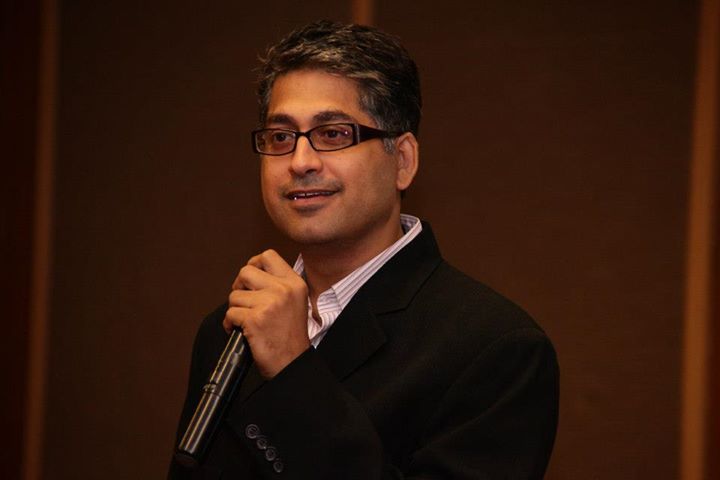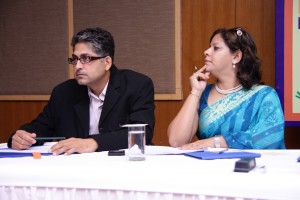Interview with Sushant Kalra Founder, Parwarish Institute of Parenting

Special Post: Today at Globalizm, we are focusing on the important topic of parenting connection with children. Our #organizationpickoftheweek – Parwarish Institute for Parenting – does amazing work in educating parents on child development. We were lucky to secure an interview with Mr. Sushant Kalra, the Founder of Parwarish to find out about the organization and get his thoughts on sex education for children, prevention of child abuse, and developing a parenting connection with one’s children. #kids #servicesaturday
Globalizm: Hello Mr. Kalra. Thank you for joining us today for this interview. What is the mission and vision of Parwarish?
Sushant:
Our mission:
Partnering and empowering parents, teachers and other caregivers in nurturing every child’s ‘No-Limitness’
Our Vision:
- Children having no limitations in their abilities and actions, growing to be no-limit adults.
- Parents having joy and fulfillment in day to day parenting
- A great relationship between parents, teachers and children
- Each and every child enjoying learning in every ‘Center of Education’, be it home or school
- The Parwarish Movement is making a difference in the life of every child, parent and teacher.
You can find out more at our website. You can subscribe to our Youtube channel for video updates.
Globalizm: Tell us about Parwarish sex education workshops. How receptive are children and parents?
Sushant: Parwarish has been conducting the workshops on Body Science with parents and adolescents for last 2 years. Whilst all agree that as parents / teachers we need to be the ones to educate our children about sex, but given the taboo and anxieties associated with it participants are a bit hesitant in talking about it initially. However due to our interactive style of conducting these sessions they do open up eventually.
Globalizm: How informed are today’s parents regarding child abuse and child safety?
Sushant: One thing which media has done is not keeping the issues related to sexuality and child abuse in the closet. The kind of news that our society is experiencing these days parents are getting scared and want more information regarding the same. Parents are aware and scared about the safety of their children. Some do take appropriate actions like talking to their children about good touch and bad touch; but most of them are not ‘bold’ enough to carry through these conversations. Moreover since this is the first generation when the need for this is being realized the way and the process too needs to be learnt.
However one thing that parents are largely ignorant about is that Boys are also at risk of Child Sexual Abuse as Girls. 1 out of every 3 Boys is being sexually abused in India as compared to 1 out of every 2 Girls.
Also, the levels of awareness might vary from city to city. Parents might be open to talk about it in cities like Delhi, Mumbai etc., but in tier 2 cities. The schools from such cities are however taking steps to conduct these workshops from us now.
Globalizm: How can parents protect children from child abuse?
Sushant: The parents have to first of all understand what Child Sexual Abuse (CSA) is and at what levels does it take place. There is a dearth of information about various forms of CSA. Not necessarily penetration but any other touch (apart from private parts also), that makes the child feel uncomfortable is a bad touch. (including exposing them to pornography, photographing them etc too is a form of CSA)
The best way to protect our children from child abuse is by making them aware. The fact that we (parents) can’t be with them all the time; makes it all the more important to educate the children about it so that they can protect themselves and can take appropriate actions if faced with such a situation. It’s not only the strangers, but mostly the people/ adults who know the child and family very well; are the perpetrators in maximum number of cases.
In brief the process would be to educate the child about good touch and bad touch and what to do in case they are confronted with such a situation. Shouting out a loud ‘NO’, running away from the place and going to a safe person and finally reporting it to both their parents.
Parents role in case this happens too becomes very critical to build the confidence of a child.
Globalizm: What are the long term effects of abuse caused to a young mind and how can they be helped by parents and family?
Sushant: Earlier the abuse starts, longer the effects remain on the psyche of the child. The act might be so sudden that the victim does not get to know what is happening to him/her. At times the perpetrators might be adults and frequent visitors to the family. Thus, saying ‘NO’ to that person might be very difficult. In most cases, the child is left with a feeling of ‘I am now dirty’, ‘I am at Fault’, etc. When grown up, there can be a general tendency of hatred towards males and themselves. It has been seen to have long term impact on their self esteem, self confidence which in turn impact almost every area of their life. Ie. Studies, being social, not relating to other, having an impact on their married life and the list can go on.
When reported with such an issue (in case); the best way parents can help is by dealing with the person straight. Not only will this stop the perpetrator from causing any further harm to the child; but it also tells the child that no matter what, s/he has the support, trust, love and affection of his parents and family intact with him/her. Also the parents / counselor needs to understand the ‘mental’ impact of the incident on the child and help them through to overcome the impact on their self esteem.
Globalizm: Do children report/talk about their problems to parents ? if they don’t, why?
Sushant: Ironically, in a country with such a rich cultural tradition of depicting sexuality; talking about Sex and related topics is now completely forbidden. Also, Saying ‘NO’ to adults is not done and is seen as a sign of disrespect. Thus talking and reporting about any form of CSA is very less.
However, if the parents open these channels of communication with their children, then children would be much freer in talking about it.
When children ask questions about sexuality they get mute, ‘I didn’t hear you’ ‘ignore’ kind of responses; which give an indication to the child that these discussions are a ‘No’. This too stops children in going to their parents in case of a CSA incident.
In lot of cases its seen that the even after the child has come to the parents, parents have not been able to take an action against the perpetrator because of social pressures. This kind of a response alienates the child to come back to the parents.
Globalizm: Though parents provide their sincere love and care to children, most often there is a gap in the bonding/connection between them. Why does this happen? How can parents create a lasting connection/bonding with their children?
Sushant: The essence to creating a lasting connection and bonding with the children is open communication. As children, they go through a myriad of experiences daily. This creates many emotions in them. As parents, we generally get into the ‘should’ and ‘could’ of the children. On the other hand, the parents can look more into sharing their day and asking about their children’s day at school or at home.
Also, children have many questions and naturally they come to parents for answers. So the way their questions get answered (especially on topics related to body science) in the 1st experience helps defining the future bond between parents and children.
Globalizm: Sushant, Thank you for all the information and the wonderful work you do through Parwarish. Could you tell us about your your personal journey that lead you to starting Parwarish Institute for Parenting?
Sushant: We never wanted to have children. When we saw parents and children– fighting, arguing, parents struggling with children and children struggling with parents – we said to ourselves. Why would we want to bring another human being into this world and make it painful, not just for ourselves but for them too.
After withstanding societal pressure for more than 5 years, we had delivery due date June 24, 2000! – you know in India it’s almost impossible not to have kids if you are married… Because that’s how it is.
We decided that we don’t want to bring up our children struggling – among other things, with the need to fulfill our dreams,. But then what is it that we want for our child?? Simple – we wanted him to be unrestricted, to be Happy and we wanted every moment of parenthood enjoyable vs. looking back after 25 years of struggle and say we must have done ok.
That’s when we started reading, researching and our experiments began with Aman – our first born.. And when our philosophy and actions with our son produced the results we were looking for – simple joy and fulfillment in everyday parenting and he being unrestricted and enjoying life. We said, if we as finance professionals, working in multinationals with a 15 hour work day can do this, then anyone can. So we put all our practices and theories together and conducted our first workshop with a set of parents in 2005. The feedback from that session led us to do this once in a while as a hobby.
But in 2008 the bug of let’s chase our dream vs. being in the corporate race bit and I quit my job with Max New York Life Insurance and setup Parwarish Institute of Parenting. The journey was tough, with every educationist looking at us as outsiders, not understanding the E of education trying and getting into their domain. For 3 years it was unending waits at the reception of various schools, conducting demonstration, free sessions when the fraternity finally started recognizing the efficacy of our programs. Once the concept got some recognition we started expanding the team. And now have a group of passionate ‘never say die’ counselors who conduct workshops, coaching sessions and individual counseling.
This small beginning with the passion to learn and implement with our own son that led to the creation of a new model of child development which we call Parwarish Model of Child development. Something that has taken almost 12 years to take this shape, and we have been supporting not only parents and teachers but also children, children with ‘learning disabilities’, children struggling with studies, emotions etc.
Over the last couple of years Parwarish won the ‘Best parent and teacher coach’ award, ‘Education Innovator award’, we got covered by National dailies like Times of India and Telegraph, and BBC too! Validating our decision to jump into this and make a real difference in the lives of Children.
Globalizm: Thank you Mr. Kalra! Congratulations and our best wishes to you and the entire Parwarish team for your mission of helping more parents discover their child’s no-limitness!


